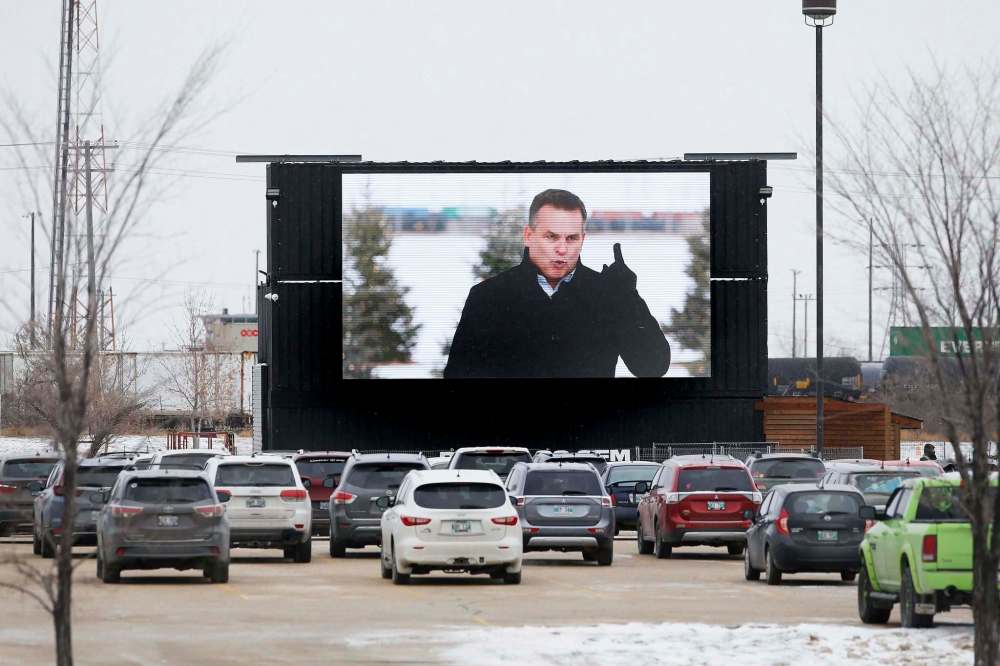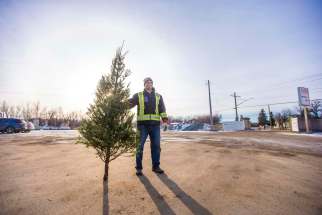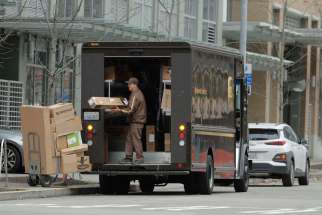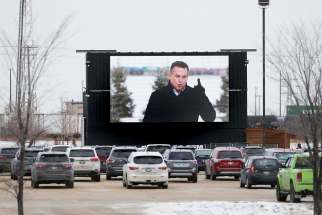Virtual worship offers a viable alternative
Read this article for free:
or
Already have an account? Log in here »
To continue reading, please subscribe:
Monthly Digital Subscription
$0 for the first 4 weeks*
- Enjoy unlimited reading on winnipegfreepress.com
- Read the E-Edition, our digital replica newspaper
- Access News Break, our award-winning app
- Play interactive puzzles
*No charge for 4 weeks then price increases to the regular rate of $19.00 plus GST every four weeks. Offer available to new and qualified returning subscribers only. Cancel any time.
Monthly Digital Subscription
$4.75/week*
- Enjoy unlimited reading on winnipegfreepress.com
- Read the E-Edition, our digital replica newspaper
- Access News Break, our award-winning app
- Play interactive puzzles
*Billed as $19 plus GST every four weeks. Cancel any time.
To continue reading, please subscribe:
Add Free Press access to your Brandon Sun subscription for only an additional
$1 for the first 4 weeks*
*Your next subscription payment will increase by $1.00 and you will be charged $16.99 plus GST for four weeks. After four weeks, your payment will increase to $23.99 plus GST every four weeks.
Read unlimited articles for free today:
or
Already have an account? Log in here »
Hey there, time traveller!
This article was published 07/12/2020 (1829 days ago), so information in it may no longer be current.
Worship communities in Manitoba, like those in all Canadian provinces, are making excellent use of new technologies in order to continue worship, study and fellowship in this pandemic period when physical gatherings are too dangerous. They have not given up on the idea of meeting together for prayer and praise. Many have, however, recognized that it makes no sense to do so until the pandemic abates. In some provinces and some denominations, in-person worship continues.
When the great information technology firms launched their online services such as YouTube and Facebook, they had no idea COVID-19 would soon sweep around the world and turn religious services into virus-spreading events. When the need arose, however, the tools lay close at hand, and churches, synagogues and other places of worship — most of which had long since embraced new technologies — quickly adapted to meet new requirements.
Manitoba ordered closure of such places on Nov. 10. Many churches had already shut down on their own initiative because gathering created risks for all involved and because members were staying home for their own reasons.

The same was done a century earlier, when the Spanish influenza pandemic afflicted Canada and the rest of humanity in the fall of 1918. The worshippers of that generation had no YouTube alternative — many at that time had no telephone. They just had to wait patiently for the pandemic to subside so people could gather once again, as they longed to do.
A few Manitoba congregations have this time defied the provincial order, claiming their constitutional right to freedom of religion is being violated. Springs of Living Water Church in Winnipeg asked Court of Queen’s Bench Chief Justice Glenn Joyal to exempt them from the provincial order.
They wanted him to let them hold services in their parking lot last Saturday and Sunday, arguing that customers are allowed to use shopping centre parking lots. The chief justice refused because there was no evidence of irreparable harm to the worshippers.
Defiant gestures by the likes of Springs Church and the Church of God Restoration near Steinbach earned a rebuke from a group of Manitoba clergy who observed that those churches are not following the command to love one’s neighbour. They recalled that Martin Luther, when the Black Death swept through Germany, avoided places and persons where his presence was not needed in order not to spread the disease.
Worship communities will serve their people best if they make the best of this bad situation. The government has perfectly valid reasons for ordering us all to avoid gathering together. Nobody is telling worshippers to desist from prayer, preaching, hymn-singing or Bible study — as long as they do it at home, perhaps with the aid of new communications technologies.
Despite recent announcements about the pending arrival of vaccines, the virus is clearly not going away soon. Worshippers in all ages have had to adapt to adverse conditions. A quest for martyrdom may appeal to some, but bashing your head against a wall of legitimate and well-founded provincial health orders amounts mostly to a way to make yourself and others unhappy. An effort to make online worship as rich, vital and expressive as possible seems like a more fruitful use of this difficult moment.
Churches should at least comply with the law. They should not defy it and they should not try to sneak around the edges of it. More than that, they should keep their people safe from infection and offer the best worship opportunities these unusual and perilous times permit.








